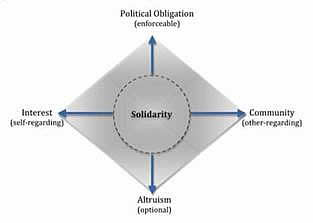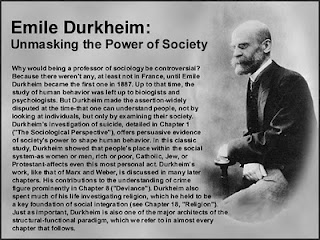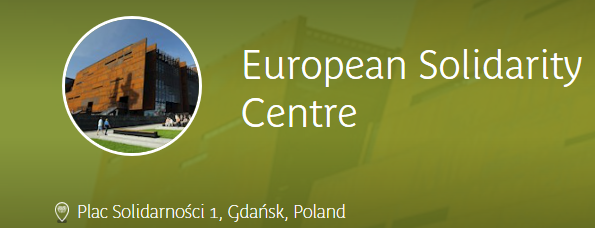| From an expression expressing brotherhood between human beings, "solidarity" has become the key to the survival of the species!
Brussels, August 1, 2022, Paul N. Goldschmidt
What a magic word! It immediately arouses a warm feeling of belonging, benevolence, good conscience, commitment by encouraging the surpassing of oneself and implies a will to act towards a shared objective that transcends individual interests. A distinction must be made between its idealized form, which belongs more to the philosophical or religious spheres, and its pragmatic form, which concerns its implementation.
"Idealized" solidarity is thus interwoven with the confrontation of moral values or legal norms such as "good and evil", "individual versus collective rights", or even refers to ethical or religious precepts such as "do not do unto others what you would not like them to do to you", "love your neighbor as yourself" or the recital of the "Beatitudes", etc.
In its application this level of generality is rarely encountered as it often comes up against conflicts of interest or indifference; it can come close, however, when it is a question of confronting an event with a strong emotional charge for which it is difficult to establish a specific chain of responsibility between cause and effect. Until recently, this was particularly the case for the solidarity that arose regularly from so-called "natural" disasters; however, since knowledge of global warming has identified their causes, they can now give rise to violent confrontations of interests that weaken the "solidarity" indispensable to overcome the urgent problem of dealing with this global challenge.
The same event can generate simultaneously solidarity, indifference or opposition. For example, Ukraine, the undisputed victim of an unprovoked aggression, has aroused the "unanimous" solidarity of the EU; however, the latter is not only divided by opposing interests between Member States, but also by fractures within them where political parties, economic sectors and social classes pursue conflicting agendas. Similarly, at the global level, civilizational or cultural traditions as well as geostrategic or economic interests relegate solidarity - whether moral or legal - to a useful accessory for those who claim it, easily yielding to the demands of "real politiek" or the comfort of indifference (see the votes at the UN General Assembly).
To deserve the label of "solidarity", an action must be independent of - but not necessarily contrary to - the interests of those who support it. It is obvious that a conjunction between solidarity and interests - as in Ukraine - makes the action more appealing; it is in the identification and promotion of this conjunction that the exemplarity of the leaders, called upon to support such actions, lies. |
|
Thus, a Ukrainian defeat would threaten the very survival of the EU's democratic regimes and the civilizational values that have been painstakingly built up over the centuries within its Members. Their preservation is immeasurably more valuable than the sacrifices demanded of the population in terms of purchasing power, (temporary) restrictions and other inconveniences that may go even as far as requiring direct military intervention, justifying thereby unreservedly the solidarity effort required.
The call for solidarity must be handled with great caution, especially when it seems to contradict proven short-term interests; transparency of the possible harmful short term consequences is essential to obtain the assent of public opinion. Properly informed, the public will be much more inclined to give their support - out of solidarity - than to oppose it. There is, however, a major obstacle to overcome in order to restore the credibility of the public authority's narrative after years of neglect and confusion. This situation is skillfully exploited by the opposition: it conceals the tragic consequences of a denial of solidarity, presented under the guise of a policy of defense of the citizen's immediate vital interests. This is notably the position of political parties such as the RN or LFI in France, the Ligua or Forza Italia in Italy, which criticize the sanctions against Russia and advocate their removal. In so doing they contribute significantly to weakening the EU and allow Putin to reach his primary objective.
The latest reports suspecting Russian complicity in the downfall of President Draghi are chilling and should be a wake-up call. Indeed, as far as Ukraine is concerned, the interests of each Member State, implied by their adhesion to the treaty, coincide by construction with those of the EU; if this were not/no longer the case, the Member in question should avail itself of Article 50 of the treaty to leave the EU. On the other hand, their continued membership is a recognition that no particular "national" interest can justify a lack of solidarity both among its Members and with Ukraine. The unfortunate abuse of finicky legal arguments under the Treaty, such as the unanimity rule for voting on sanctions, only weakens the Union's position in the geopolitical arena, increases its strategic vulnerability and renders the very concept of solidarity meaningless.
The ramifications of the war in Ukraine have demonstrated its global effects, be they economic, financial, military, social or, more fundamentally, political and geostrategic: major powers have now clearly stated as their priority, the establishment of a new world order based on their own authoritarian models.
However, it should be manifest that any attempt to impose a new world order can only be based on the concept of "solidarity" in its most universalist sense. |
|
Every human being should subscribe to this self-interested imperative, if only to ensure the very survival of the planet threatened with total destruction, whether by global warming brought about by unbridled human activity or by the arsenal of nuclear weapons whose use is synonymous with Armageddon.
This observation excludes, by construction, the tolerance of a conflict opposing head-on the supporters of the status quo and emerging authoritarian regimes. The main difficulty stems from the incompatibility of the value systems of the two sides, which reinforces the risk of total mutual destruction in the event of war. The game of (nuclear) chicken, currently being played out, risks to run out of control at any moment with irretrievable consequences.
Another fundamental obstacle derives from the unprecedented technical progress in communications (both real and fake) that has spread awareness across the globe of the profound inequalities between and within populations; while they have always existed, their worldwide visibility now makes them unbearable.
The survival of the planet therefore urgently requires the establishment of a "SOLIDARITY" world order to which all are called to contribute. At the top of the agenda must be the definitive and controlled elimination of nuclear arsenals and an acceptable distribution of efforts to limit global warming. Without this precondition, we will be leaving our heirs a globe with a burning fuse that could explode at any moment.
The necessary readjustment of the world order implies inescapable sacrifices, especially for the developed countries, which will have to accept a smaller share of global resources, not to eliminate the inequalities that are inherent in human nature, but to ensure greater social justice and the preservation of the human species. In reality, these adjustments should be largely offset and cushioned by the continuous evolution of knowledge as well as the pursuit of innovation and development of skills. While the older generation which holds power and owns wealth today may be scared by this announced upheaval, numerous signs show that its younger upcoming successors are both better prepared if not eager to meet the challenge. We should not be allowed to deprive them from the opportunity to try through our lack of "solidarity".
But it is not primarily through a transfer of wealth that a new harmonious relationship can be gradually established between people. It should be recognized that the Western value system has consistently demonstrated for the past 500 years its unique capacity - compared with any other system - despite its profound failings and injustices, to provide for man's material needs and in particular to adapt to the demographic explosion of the species. In order to give ourselves the best possible means to meet the colossal challenge that lies ahead, it appears logical as well as sound to build on this system as the basis to carry out the profound unavoidable transformation of society. Only then can the specter of the disappearance of the human race be averted. |


